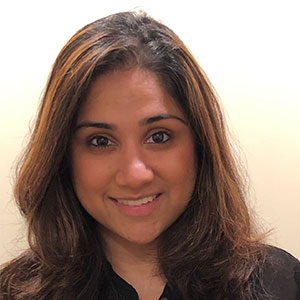Expert Anxiety Psychiatrist
Anxiety Therapist in San Jose & Los Gatos, CA
At Lumos Psychiatric Services, we offer specialized support for those facing anxiety disorders or trauma-related disorders in California. We aim to help you manage anxiety symptoms and embark on a journey toward tranquility. If trauma or overwhelming anxiety symptoms are hindering your quality of life, don’t wait to seek help. Schedule a consultation today and take the first step towards reclaiming your well-being.


Understanding Anxiety Disorders
Experiencing occasional anxiety is a normal aspect of life. However, when worry, racing thoughts, and nervousness persist without a clear cause or linger long after a stressful situation has ended, it might indicate an anxiety disorder.
Anxiety disorders are the most prevalent mental health concern in the U.S., affecting over 40 million individuals. While they can occur at any age, they are especially common among adults. Recognizing the signs is the first step toward treatment.
The origins of anxiety disorders are multifaceted, involving a combination of genetic, environmental, psychological, and physical factors. These conditions may arise from:
- Genetic predispositions that make certain individuals more susceptible to anxiety
- Imbalances in brain chemistry affecting neurotransmitter function
- Environmental stressors, including traumatic events and daily pressures
- Underlying medical conditions that can exacerbate or trigger anxiety symptoms
- Lifestyle factors, such as workload, relationship dynamics, and personal habits
Anxiety Symptoms
Anxiety disorders manifest through various symptoms, disrupting daily life:
- Panic attacks
- Persistent restlessness
- Overwhelming nervousness
- Feelings of doom without specific triggers
- Elevated heart rate
- Quickened breathing
- Racing thoughts
- Trouble focusing
- Excessive worry
- Difficulty sleeping
- Unusual fatigue
- Causes of Anxiety Disorders
Anxiety disorders stem from a complex mix of genetic predisposition, brain chemistry imbalances, environmental stress, medical conditions, and lifestyle factors. Understanding these elements is crucial for effective treatment.
Types of Anxiety Disorders We Treat
We address all forms of anxiety disorders, including:
- Generalized anxiety disorder
- Panic disorder
- Social anxiety disorder
- Obsessive-compulsive disorder
Anxiety Treatment Options
We believe in a comprehensive approach to anxiety treatment, combining medication, therapy, and lifestyle adjustments to improve symptoms significantly. Our treatments are tailored to meet each patient’s needs, offering daily and as-needed medication options alongside talk therapy. This integrated method helps address both the psychological and physiological aspects of anxiety.


Is Seeing a Psychiatrist Beneficial for Anxiety?
Absolutely. Psychiatrists are experts in diagnosing and treating anxiety, offering personalized plans that may include therapy, medication, and lifestyle modifications. We know finding time in your busy schedule can be complicated, so we’re happy to offer telepsychiatry services.
Which Healthcare Provider Should I Consult for Anxiety?
A psychiatrist or psychologist specializing in anxiety disorders is ideal. They provide a comprehensive approach to treatment, including diagnosis, therapy, and medication.
What Are Common Signs of Anxiety?
Anxiety can manifest through constant worry, restlessness, concentration difficulties, sleep issues, and physical symptoms like rapid heart rate, avoidance behaviors, and mood swings.
Effective Coping Strategies for Anxiety
- Practicing mindfulness and meditation
- Employing cognitive-behavioral techniques
- Making lifestyle changes
- Lifestyle Management for Anxiety and Stress
In addition to clinical treatments, adopting healthy lifestyle habits plays a crucial role in managing anxiety and stress:
- Incorporate mindfulness and meditation
- Exercise regularly
- Maintain a balanced diet
- Limit alcohol and caffeine intake
- Build a supportive network
- Set achievable goals
- Seek professional guidance when necessary
At Lumos Psychiatric Services, we embrace an integrated treatment philosophy, combining medical expertise with lifestyle modifications to help our San Jose and Los Gatos patients achieve lasting peace and balance.
Addressing Trauma-Related Disorders
We also specialize in treating trauma-related disorders, such as PTSD, acute stress disorder, and reactive attachment disorder, through a blend of medication, talk therapy, and lifestyle changes designed to support recovery and healing.
Take control of your life again. If you’re ready to address your anxiety or trauma-related symptoms, contact Lumos Psychiatric Services for a consultation. Let us guide you towards a calmer, more fulfilled life.
Anxiety Disorder Treatment With Lumos Psychiatric
At Lumos Psychiatric, we understand the complexities of anxiety disorders and offer a compassionate, specialized approach to address your individual needs. Nestled in the vibrant communities of San Jose and Los Gatos, CA, our experienced team is dedicated to supporting you with expert care tailored specifically for anxiety management.
Connect with us to learn more about our approach to easing anxiety and how we can support your journey towards better mental health. Embrace the important step toward healing and well-being by contacting Lumos Psychiatric. Together, we can navigate the path of recovery with our welcoming facilities in San Jose and Los Gatos, CA, eagerly awaiting your visit.

Ready to reclaim your life?
Lumos Psychiatric Services can help. Fill out the form below to schedule your appointment now.
Dr. Maitra is awesome! I can't say enough about her. She cares about her patients and has a great team of co-workers. Swati goes above and beyond and handles extra tasks for me. More than recommended for anyone who wants a great professional at an accommodating clinic with a lovely team of staff members. Thanks for everything, guys!
-A. A.
I didn't want to consult a psychiatrist because my lifestyle demanded mental health therapy. I thought I could do it all, handle it all, and be the superwoman everyone thought I was and my family expected of me...anxiety and depression took over my life and I tried everything to rise above it. In my 20s, I was diagnosed with ADHD. Left untreated, the symptoms tormented my life and hurt people I loved. Dr. Maitra is compassionate and the best psychiatrist around. She helped me understand I had a biological imbalance, not just a mental illness. She gave me the strength to share my journey without shame. Dr. Maitra has also been helping me with other private concerns, so I'm confident and hopeful I can overcome these too. Her office is gorgeous and her team handles the important aspects! I would recommend her to anyone who needs a second or third opportunity, is hesitant about a diagnosis, fears judgment, or has lost hope!
She's humble and kind. If you trust her, she can change your life too!
-I. A.

Dr. Sarbani Maitra,
MD, Psychiatrist
Meet Dr. Maitra
Sarbani Maitra, MD is a board eligible psychiatrist. She has a Bachelors in Science from Tennessee Technological University in Chemistry leading up to her doctorate of medicine from the American University of the Caribbean Medical School. She then went on to gain clinical experience at Queen’s Hospital (erstwhile Old Church Hospital), London U.K. for a period of three years. She pursued her residency in Psychiatry at Meharry Medical College in Nashville Tennessee after working in research on women’s health issues at the Center of Women’s Health and Research. Dr Maitra has extensive experience working in both inpatient and outpatient settings managing patients across the spectrum with psychotic disorders, mood disorders, trauma-related disorders and patients struggling with substance use disorders. She believes in an integrated approach to mental health which includes the biopsychosocial approach. [Read More]
